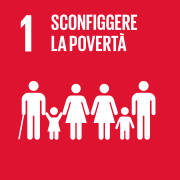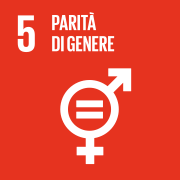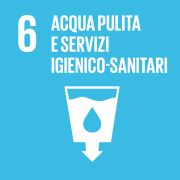I still remember well when, eight years ago now, I published a post on Facebook that read more or less like this: “anyone want to participate in a new project?“. It was on the evening of New Year’s Eve (what one does not do to save oneself from a New Year’s Eve party), but in spite of this, many people replied. And at that point the die was cast….
It was still the era of blogs…
At the time, the idea was to create a multi-author blog (yes, blogs were still fashionable) where one could reflect on the role of technology and economics in the development of society, taking into consideration different points of view coming from experts, technicians, university professors, and researchers belonging to the most varied disciplines.
Even the bumblebee can fly
Today we would indeed speak of digital transformation, but back then it was not yet called that. Although that was already the meaning. I and many others felt the need for a space where we could develop a serious reflection on the transformative dimension of digital in the world. A reflection that was not bound to the burning times imposed by an increasingly hit and run information, that was not conditioned by the anxiety of analytics and traffic, that did not live in the shadow of click-baiting. One that did not have to respond to sponsors and strict commercial logics and that allowed us to have our say without having to worry too much about being liked or disliked. We were dreamers, and we still are. In short: not exactly the best if you want to make a business out of it. A bit like Einstein’s bumblebee (which doesn’t actually seem to be Einstein’s): something that just seemed like it couldn’t fly. Yet, in defiance of the laws of physics or – just as in the case of Einstein’s bumblebee – by virtue of the fact that sometimes physics is more complex than we think we know how to interpret it, Tech Economy has been flying happily since 2012.
Time for a change
Many have realised the peculiarity of an instrument that does not chase the market, but tries to reflect on it. Many over time have approached a project that has grown with them and that thanks to them has renewed itself and continues to renew itself (some, admittedly, have not understood it. But rest assured that we will get over it). By now Tech Economy is well known. It has an extraordinarily large target audience, if we look at the topics it deals with and how it deals with them. It is appreciated because – among other things – we have no hair on our tongues and no friends to defend a priori. In short: it is a very special machine, and it is well run in. And what do you do with a run-in machine? I don’t know about you, but we certainly don’t do the obvious: that is, oil it up properly and keep it that way. In fact, we change it. Yes, you read that right. We don’t give it a makeover, we don’t repaint it. We are changing it completely. Starting with the name.
Be careful not to get the question wrong
Why change everything? Because we think that Tech Economy, as we thought of it, is basically no longer needed. Eight years ago, we started our joint discussion on the role and meaning of technology as a tool for transforming society. Eight years later, this question is now being asked by many. And we are bored with it. We got bored because we think that an important part of the world of information, of research, of society, today, is in danger of getting the question wrong. A risk that runs every time it asks itself whether artificial intelligence creates or destroys jobs, every time it wonders whether big data is a tool for understanding society or for controlling it, every time it wonders whether social networks create new solitudes or develop new relational modes. Every time, in short, that one asks whether technology is good or bad for us.
Because the point – today – still cannot be to try to understand whether technology is good or bad for us. We cannot limit ourselves to a spectator role in the development of a technology experienced in its evolutions as if it did not depend (also) on us. We cannot, in short, limit ourselves to thinking that we have to suffer the results of choices that, after all, we ourselves co-determine.
When we ask ourselves whether technology is good or bad for us, we get the question wrong.
Let us not ask ‘if’, but let us ask ‘how’.
For us, today, the correct question is not whether technology is good or bad for us, but how it should be used to support a model of technological development that is not only good, but becomes instrumental in the development of a better world. We should not ask ourselves whether big data is a good idea, but how to use it so that it is useful. We must not ask whether blockchain is a solution or a problem, but how to harness it so that it makes a positive impact. We should not ask ourselves whether robots will eliminate jobs, but how to organise ourselves so that they create an advantage for companies and workers. In short: the difference between Taylor and Ford is not in the technology, but in the model of society to which those who implemented it looked. Let us watch developments in technology carefully, intercept and discuss the risks, but work hard to exploit the benefits!
Which way to go?
Technology as a tool for building a better world? Easy to say, but what does that mean – in concrete terms – a better world? Again, before getting lost in abstract reflections, we have the way, and it is called sustainability. Technology must become a useful tool for building a sustainable world. Environmental, economic and social sustainability are not abstract principles: they are parts of a complex and interconnected system that must be the goal to aim for when we ask ourselves what good is to be gained from digital transformation. Digital transformation that must become precisely, a tool for sustainability.
Sustainability …is an ‘agenda’ issue (today)
For almost a decade now, an important part of my work has taken place on the other side of the world, where for the United Nations I work on analysing the impacts of digital transformation on urban sustainability. A job so far removed from what is done in Italy that I have never even been tempted, on this side of the ocean, to talk about it much. Today, however, something is finally changing. The issue of sustainability is becoming central in our country too, and we are finally starting to think about sustainability in a truly comprehensive manner. Or so it is to be hoped. And doing so means having Agenda 2030 as a beacon. A lighthouse that we know thanks to the excellent work of realities that even in our country are concerned with disseminating its culture (one of which isAsvis), but which still only risks illuminating those who already know where to look. Even if Ursula Von der Leyen ‘s words give hope that things are destined to change soon.
A new road
And with that we come to us. Where does Tech Economy go from here? Tech Economy wants to make its contribution to this path by totally focusing its action on issues related to sustainability, within the framework of the Agenda 2030 goals.
We are convinced that today it is a real social duty of those involved in technology and digital transformation to devote as much attention as possible to this issue. And in order to do this in the right way, we want to start with the right questions (or what we consider to be the right questions):
- How can digital transformation be used as a lever for sustainability?
- How can we use technology as a tool to improve our society, our environment, our economy?
- What choices should be supported to make technology an ally in this journey?
Only by looking at this perspective can society understand how to positively exploit the levers of technology and digital. Only in this way – and by referring to a ‘high’ framework, which is that of Agenda2030 – will we be able to direct the right political choices on the most disparate issues that technology touches upon: from information to the sharing economy, from the platform society to 5g, from privacy to the role of social networks, from web tax to fake news. And so here we are with what is far more than a restyling.
Tech economy 2030
The activities of Tech Economy ‘converge’ towards the Digital Transformation Institute, because we are convinced that research activity is essential at this historic moment and that raising awareness of what is happening is a fundamental element in order to win the challenge of the change taking place. The Digital Transformation Institute, which has been in existence for three years now, will become the ‘engine’ of our change, starting with an editorial project that takes from Tech Economy the people, ideas, and experiences gained over many years and projects them towards a new objective: looking at technology as a tool for sustainability. And to do so – and this is no small thing – by trying to break down the barrier of skills, of mutual distrust, of models that are not always shared between those who deal with sustainability and those who deal with digital. We are convinced that these two worlds, in order to work, must touch each other more than they have done so far.
We want to commit ourselves to making our contribution in this direction.
What happens now?
What we have said we want to do, for now, in five ways:
- By retiring Tech Economy as we have experienced it over so many years to build the new Tech economy 2030, which we hope you will enjoy as much as and more than its elderly parent;
- Publishing a manifesto that – in its essentiality – is intended to be our reference and guide in building this new project;
- By developing research on the role of technology as a sustainability tool aimed at identifying a set of concrete indicators;
- Working on a major event on technology for sustainability (which does not mean sustainable technology) that we are planning for 2020;
- Publishing a book on the subject. Within the year (yes I admit it: I added this one to try to force myself to close the drafts, which have been on hold for too long).
And so, without too much sentimentality (although I won’t hide the fact that there is a lot of emotion) thank you to all those who have read, written, supported, criticised, hated and loved our Tech Economy. Thanks to all those who have helped us to make it grow and have led us to see it turn into something new and different today. And, we hope, even more exciting.
Thanks to Tech Economy. And farewell. Welcome Tech Economy 2030.
















